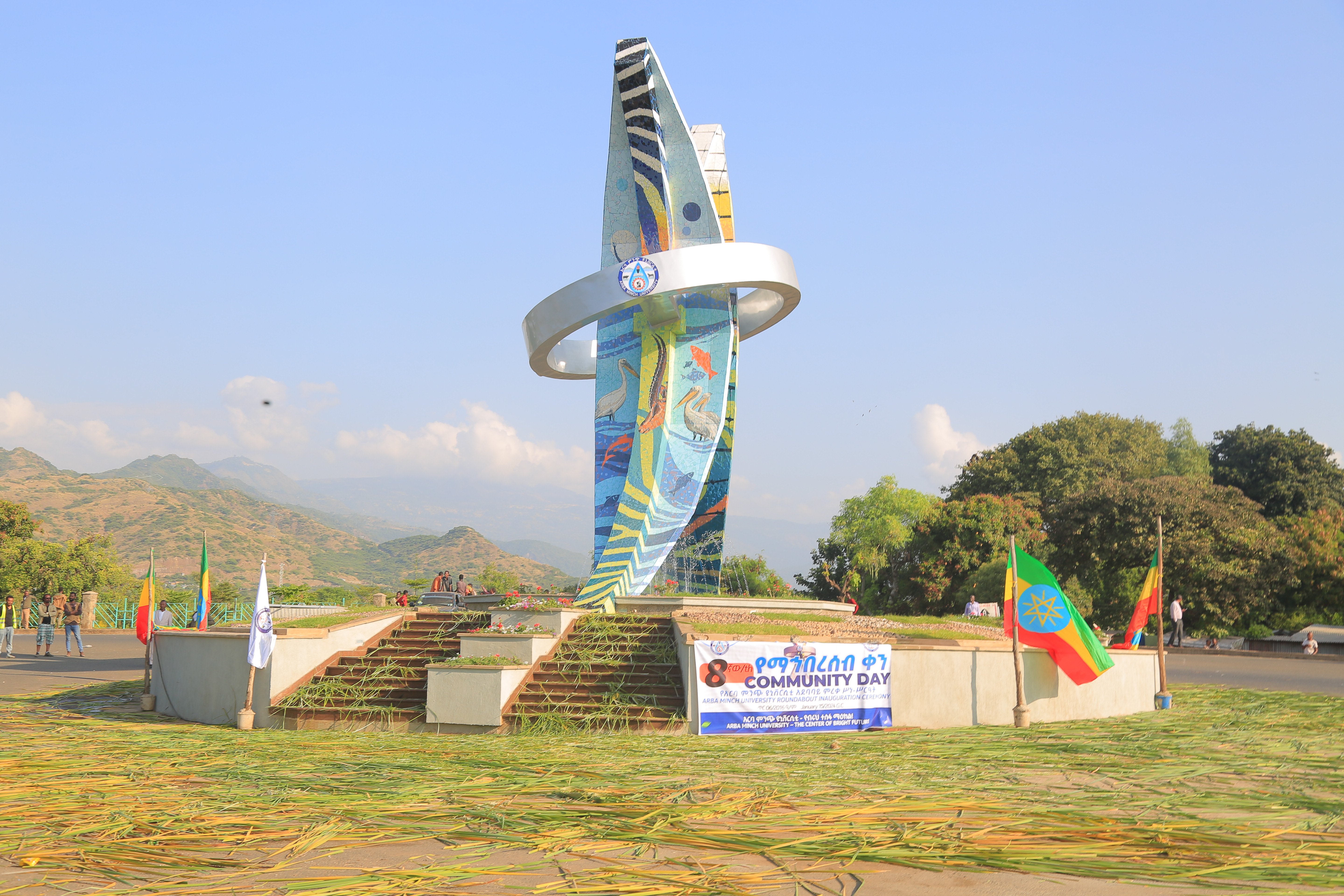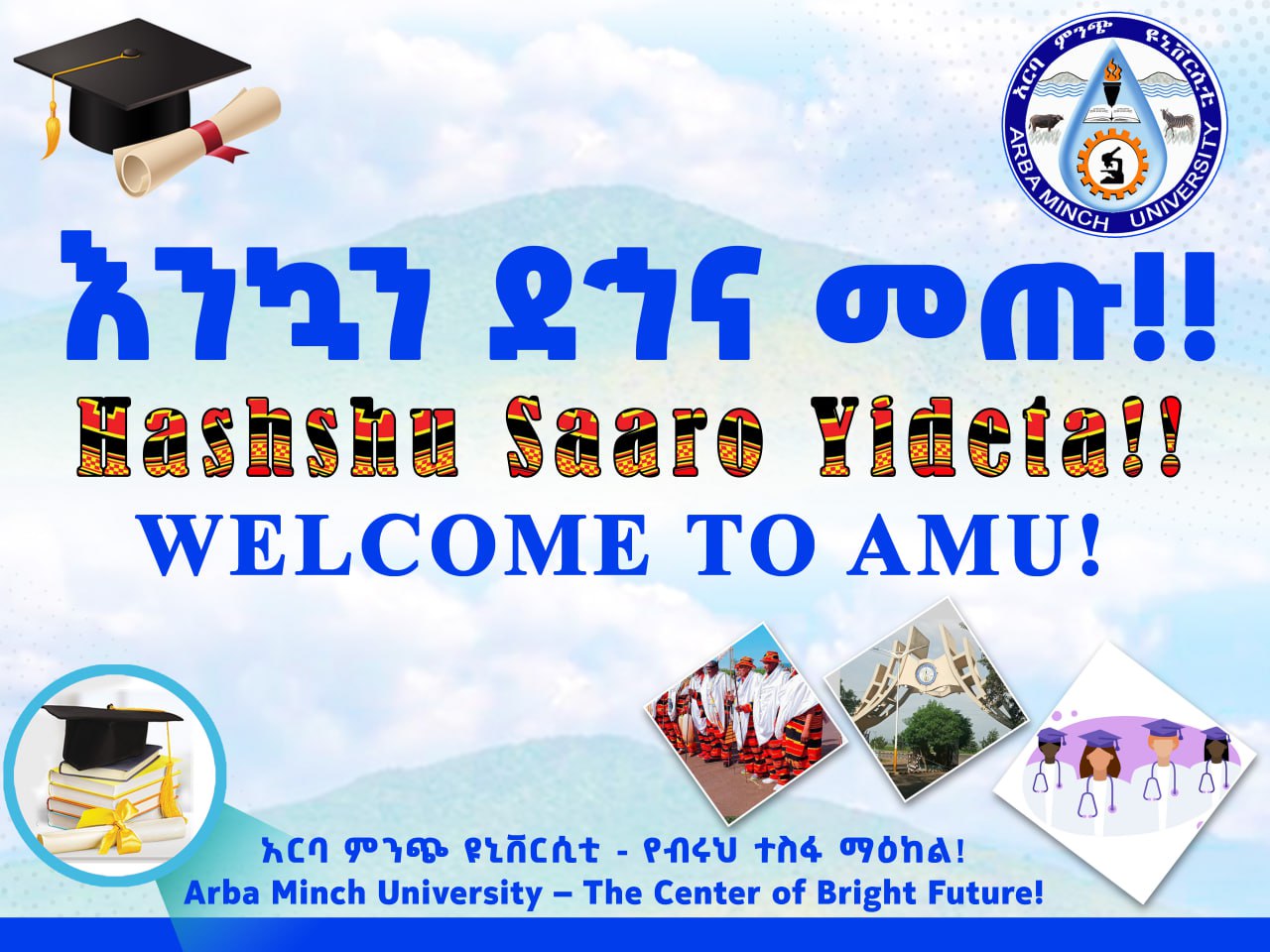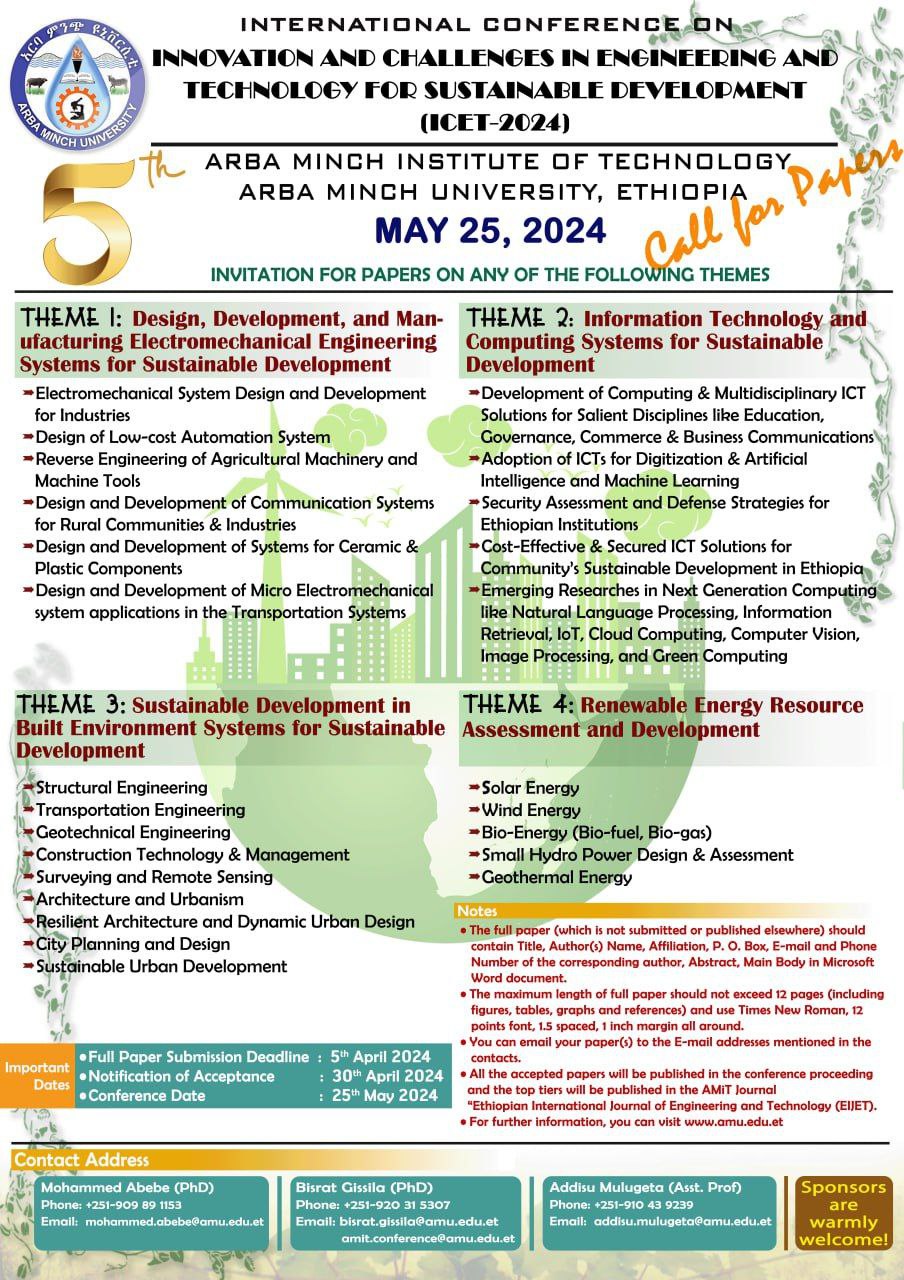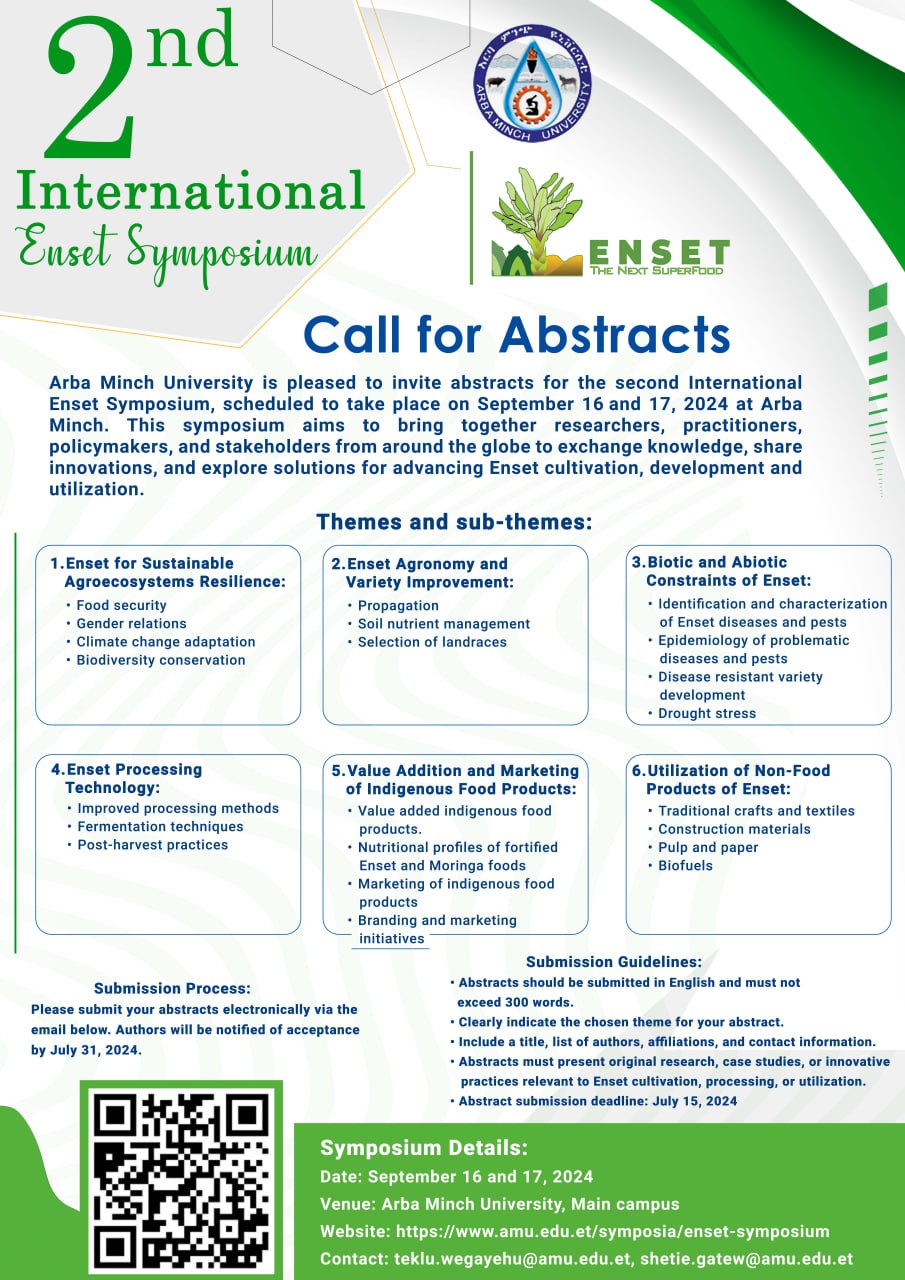The 4th national symposium on ‘Research for Development,’ organized from 22-23rd May, 2017, saw eminent researchers descended at Arba Minch University from across Ethiopia cogitating to synergize research initiatives that will ensure sustainable development. Click here to see the pictures.
The symposium was jointly organized by AMU’s College of Social Sciences and Humanities, College of Business and Economics, School of Law and Behavioral & Social Study unit; wherein of 25 papers selected for deliberation seven were from AMU.
Research Directorate Director, Dr Simon Shibru welcoming audience, said, primarily research is meant to find solutions to the problems and demands which could be achieved through multi-disciplinary research for innovation, adoption, transfer and technology enhancement suitable for the well-being of nation. Therefore, establishing effectively efficient and financially viable culture of research that gives rise to sustainable growth has become the mandatory approach at AMU.
To ensure sustainable development in the country, AMU President, Dr Damtew Darza, in his speech, said, that Higher Education Institutions are expected to play pivotal role by involving in advanced research, transfer of technologies and producing skilled manpower, which will have predominant impact in improving the lives of community.
He further adds, AMU’s contribution in strengthening government’s efforts is noteworthy as university continues to diversify its various programs and enhancing research capacity by staff engagement that is on the upswing.
The guest of honor, Prof Laureate Tirussew Teffera, in his keynote speech, said, over last two decades, Ethiopia has made significant achievements in primary education like registering high enrolment, introduced mother tongue, gender parity, robust growth in pre-primary and notable expansion in higher education.
Stressing further, he said, if you seek transformation in research, then your children must have fundamental rights to quality education, the way teachers are trained needs to be changed and a systemic approach in research will help you to achieve tangible results. We must ensure inclusivity all across by encouraging creativity and immense focus on applied research, which will yield desired fruits for community’s well-being. He asked university to engage in consultancy services to fund own research.
Dr Abera Uncha, on ‘Decline of indigenous crop: ‘Qoltso’ (Arisaema schimperianum),’ said, this crop found in Gamo Highlands, which never allowed people to experience famine for it serves as an alternative food. But, unfortunately, it’s vanishing for reasons like inapt soil-fertility management, indifference by peasant community, lack of manure, etc.
Other six research findings from AMU dealt into issues like rural poverty, conservation practices, Nechsar National Park’s status, indigenous food crops, inter-cultural communication, psychotherapy and social media. Remaining papers were from Addis Ababa, Debre Markos, Mizan-Tepi, Debre Berhan, Assosa, Jimma, Gondar, Dire Dawa, Ambo, Adigrat, Mekelle and Kotebe Metropolitan universities.
In his closing remark the delegate to Vice President for Research and Community Service, Dr Teklu Wegayehu, lauding the initiative, he emphasizes for stronger ties between universities, industries and research users to effectively disseminate ideas, products and services that will change the lives of community through community engagements.
AMU researchers, academic staff, students, stakeholders and invitees were in attendance. Institutional Quality Enhancement Directorate Director, Dr Tesfaye Habtemariam, anchored the program.
(Corporate Communication Directorate)
